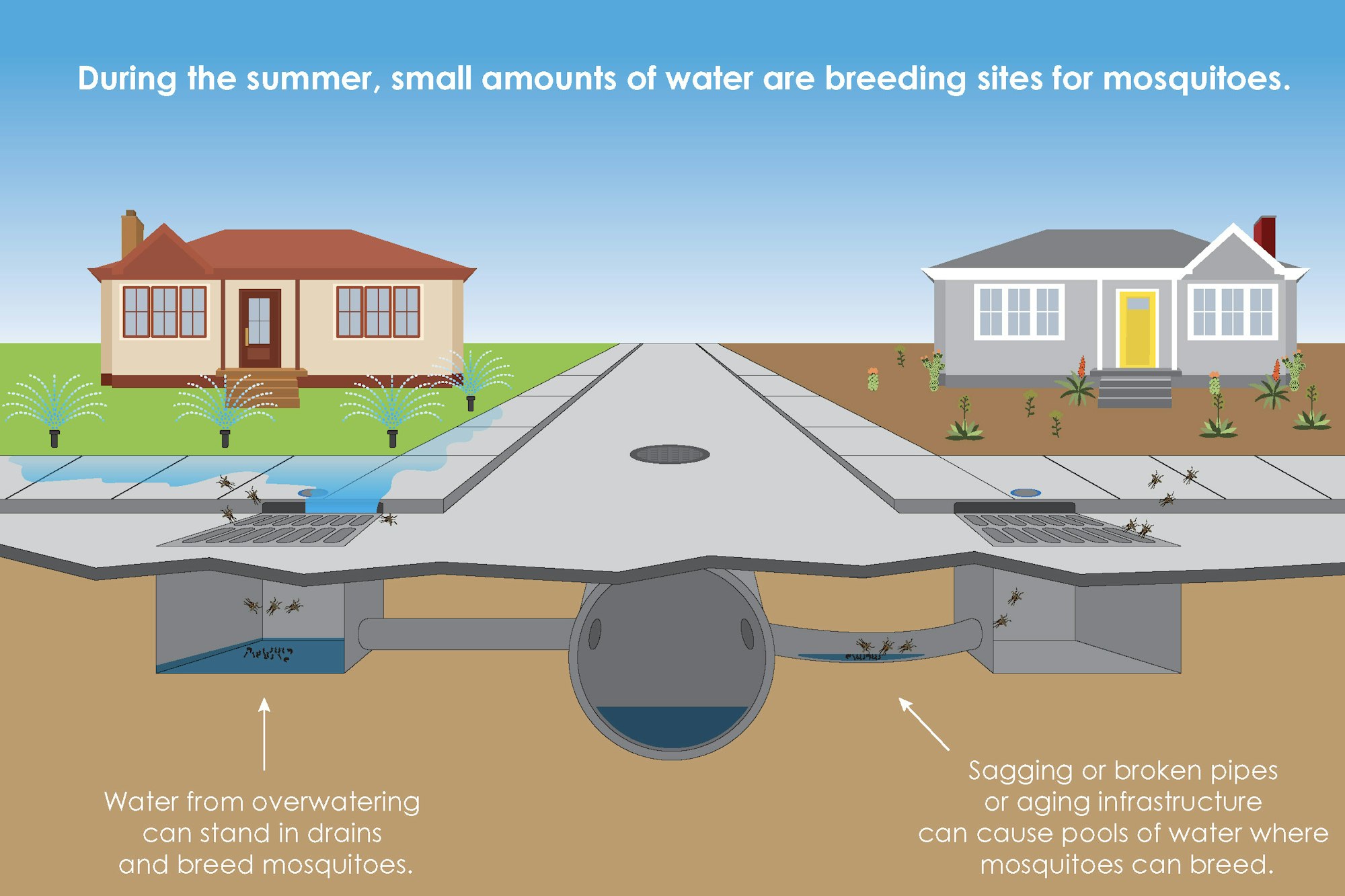June 2023 Newsletter
Winter Rainfall

Water in a confined area is referred to as an 'impound.' Impounds can form in low-lying areas or when man-made structures like dams, levees, and gates prevent the flow of water. Impounds of standing water can be a significant source of mosquitoes. Much of our work in the rainy months is focused on these seasonally-formed impounds. Usually by May and June, many of our natural freshwater mosquito breeding habitats would begin to dry up. However, the heavy rains this past season resulted in many of these areas continuing to hold water into June. Staff manage these large impounded areas by inspecting for mosquito larvae and applying biorational larvicides that control mosquitoes in the juvenile larval stage before they can become adults.
Report Dead Birds
Would you like to help us protect against mosquito-borne illnesses? The California Department of Public Health’s West Nile virus call center is now open with live operators. Residents who find a dead bird in good condition (head and eyes intact and not infested with flies or ants) should call 1-877-WNV-BIRD (1- 877-968-2473) or file a report online at westnile.ca.gov. If suitable for testing, a District staff member will bring the bird back to the lab and test the carcass for the presence of mosquito-borne disease.
West Nile Virus 2023 Season
San Mateo County
To date, West Nile virus (WNV) has not been detected in any dead bird, mosquito, or sentinel chicken samples in San Mateo County in 2023.
California
Thus far, in 2023, WNV has been detected in nine counties statewide, including two in the coastal region, Alameda County and Santa Clara County. These detections include fifteen mosquito samples and sixteen dead birds. Statewide, 1,993 birds have been reported, 350 have been tested, and sixteen have tested positive for WNV (5%). No sentinel chickens have tested positive for WNV, and there have been no human cases reported in California. For additional information, visit westnile.ca.gov.
Preventing West Nile Virus

The peak months for West Nile virus detections in our County have historically been between late July and October, but the work begins before then. In late April, our seasonal catch basin drivers begin treating most of the catch basins and storm drains throughout San Mateo County. A single catch basin can produce thousands of mosquitoes if untreated. A spring start helps us keep the adult population low and reduces the chance of West Nile virus being detected in our County.
Also, starting in April, district staff begin treating standing water in the horizontal pipes connecting storm drains. This larvicide application system can treat water standing in pipes that our catch basin drivers cannot reach with their equipment. This program usually targets neighborhoods built on historic marshland, and the shifting of the substrate has caused sags in the lateral pipes and resulted in pockets of standing water where mosquitoes can grow.





